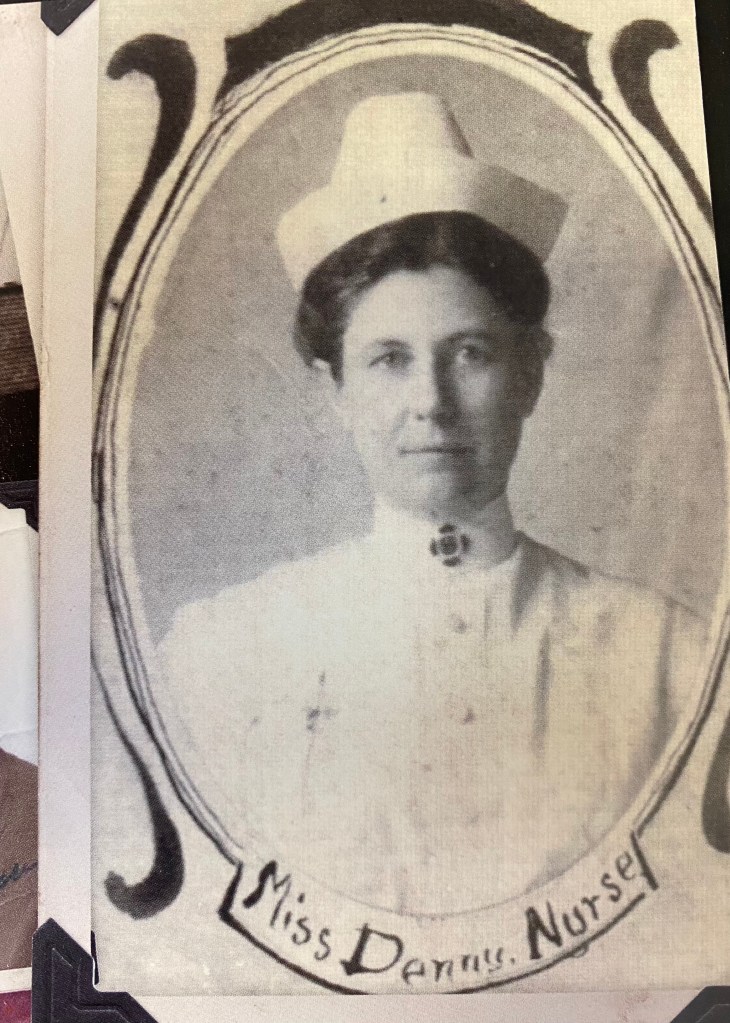The forgotten legacy of Linna Hamilton Denny
Published 11:00 am Thursday, December 8, 2022

- A photo of Linna Hamilton Denny in the Athens Forever commemorative book.
In 1909 Athens Female College suffered a deadly outbreak of typhoid that claimed the lives of 15 students and one employee.
Linna Hamilton Denny was a campus nurse at the time and was a hero during the outbreak, much like the better known Florence Brown. Following the event, Denny authored two articles in the American Journal of Nursing detailing a first-hand account of the typhoid outbreak.
Denny graduated from the Illinois Training School for nurses and received her Red Cross Nurse’s badge in 1900. She was the first Red Cross nurse in Alabama.
When Denny arrived at Athens, President Mary Norman Moore made no mention of a threat of Typhoid, but did warn her of influenza, tonsillitis, measles, mumps, and even malaria. There had not been many incidents of typhoid at Athens College during its existence, unlike many other institutions of the time.
The week of the onset of the typhoid outbreak was “like a terrifying dream,” Denny noted.
On Oct. 15, the first student fell ill with a fever of 103 degrees, shortly followed by two more students. By the following Monday, 30 girls were sick.
Typhoid was not the first illness that Denny and campus physician Dr. William Hagan suspected. Their thoughts instead went to influenza or ptomaine poisoning with typhoid being an unlikely suspect.
By Wednesday, 50 students and employees had fallen sick.
Renowned bacteriologist from Vanderbilt medical school Dr. William Litterer examined specimens of blood, urine, and excreta and determined that typhoid fever was the illness plaguing the school.
By then, 57 of 218 students had contracted typhoid, along with at least eight faculty members.
The school was dismissed on Oct. 25 and students who were still able to travel were free to return home. 17 students remained quarantined on campus.
Brown remained on campus with Denny and other area nurses to care for the sick students, the only faculty member to do so. Brown tragically died on Nov. 5 from a sudden hemorrhage. The following day, typhoid claimed the second life of a victim on campus with three other students on campus shortly following, as well as 11 students who expired at home.
State health officials originally concluded the outbreak had originated from a case of “walking typhoid,” but later suspected Athen’s open water supply could be the culprit. The “Big Spring” near campus was then sealed and by 1911 the college purchased a system to sterilize the water supply coming to the college.
The college resumed operations on Jan. 6, 1910 with a population of 125. It would take the college until the 1930s to reach a pre-typhoid enrollment once again.
Denny survived the typhoid outbreak and continued a successful career in nursing for much of the rest of her life.





